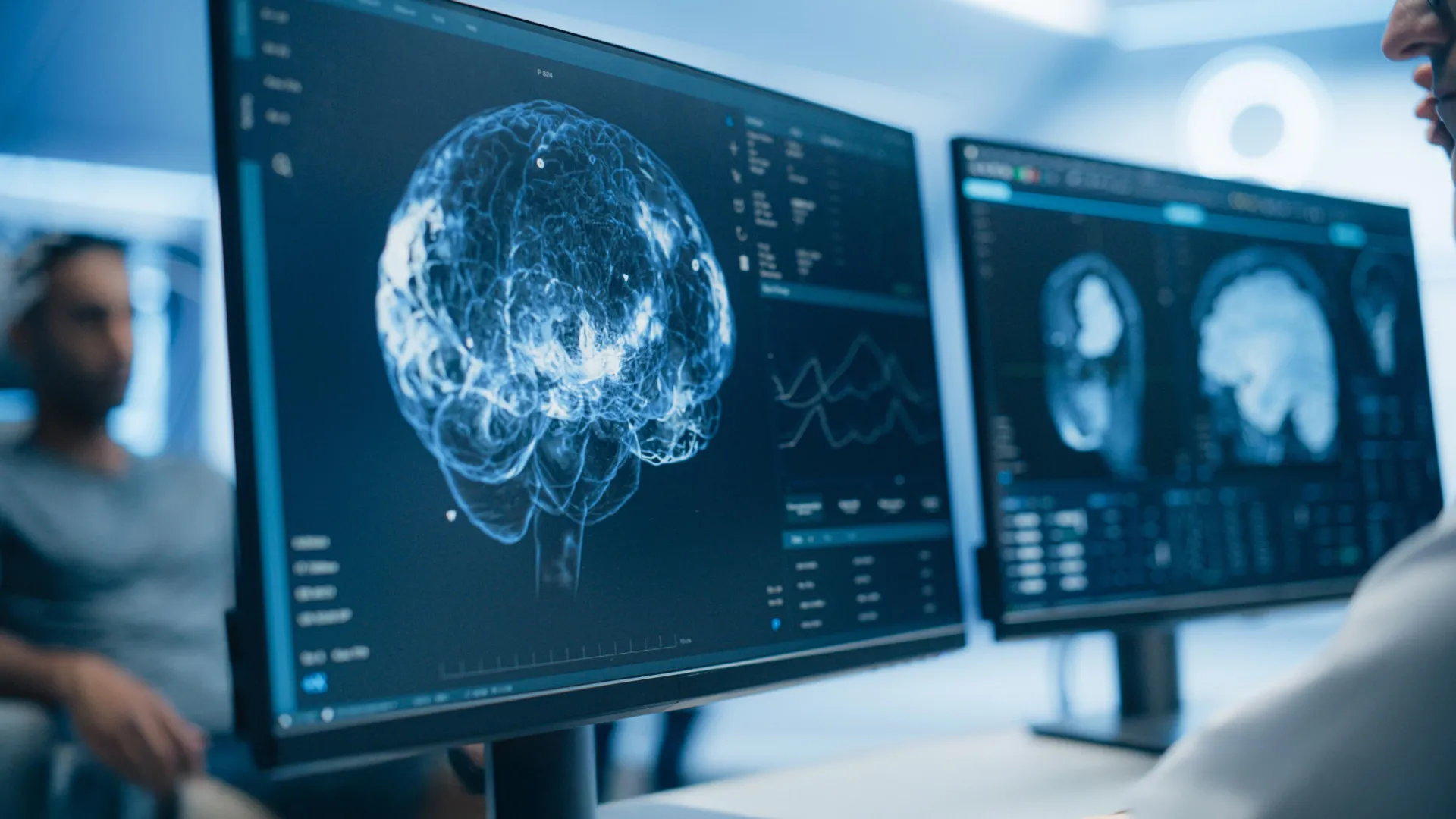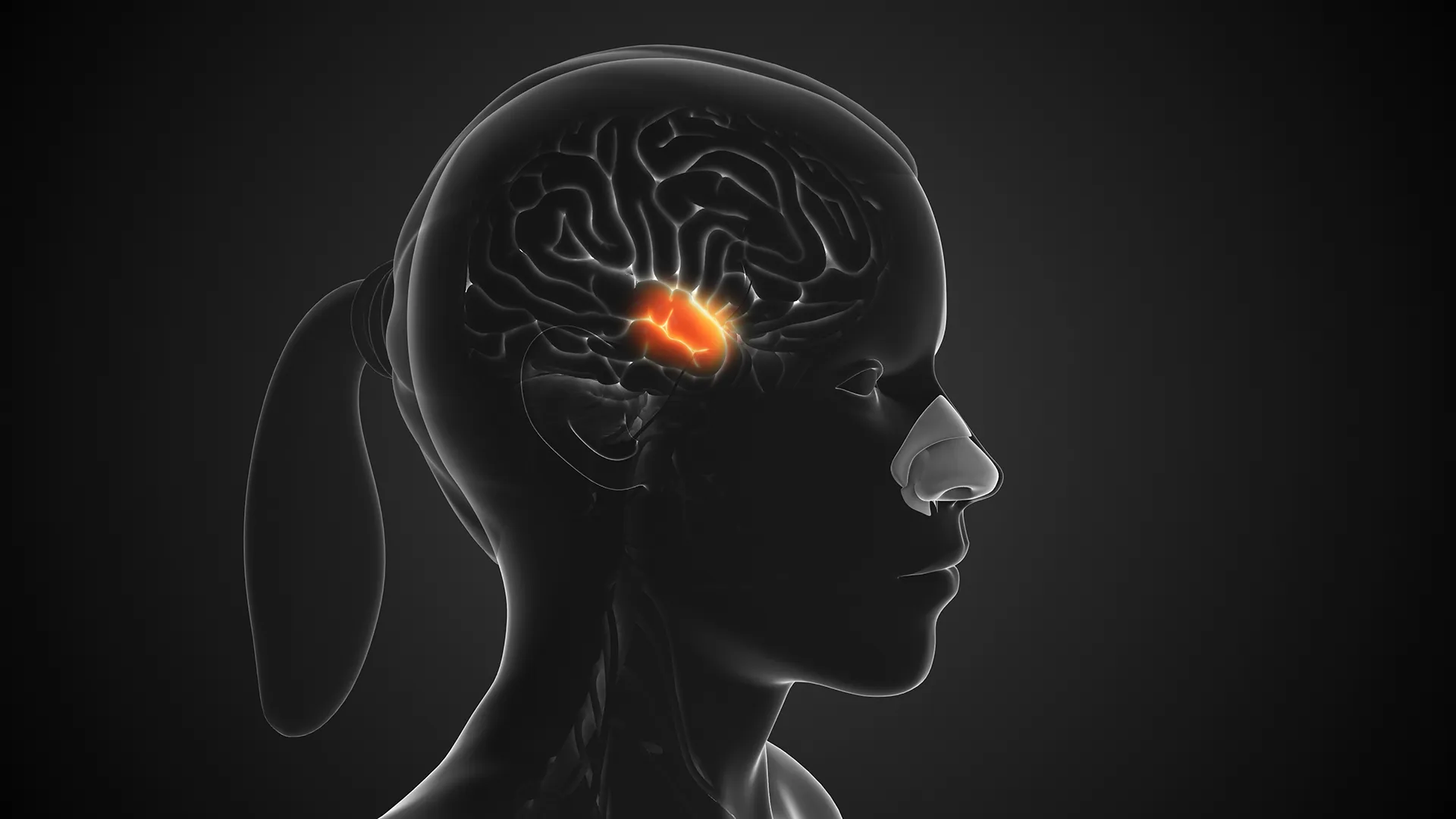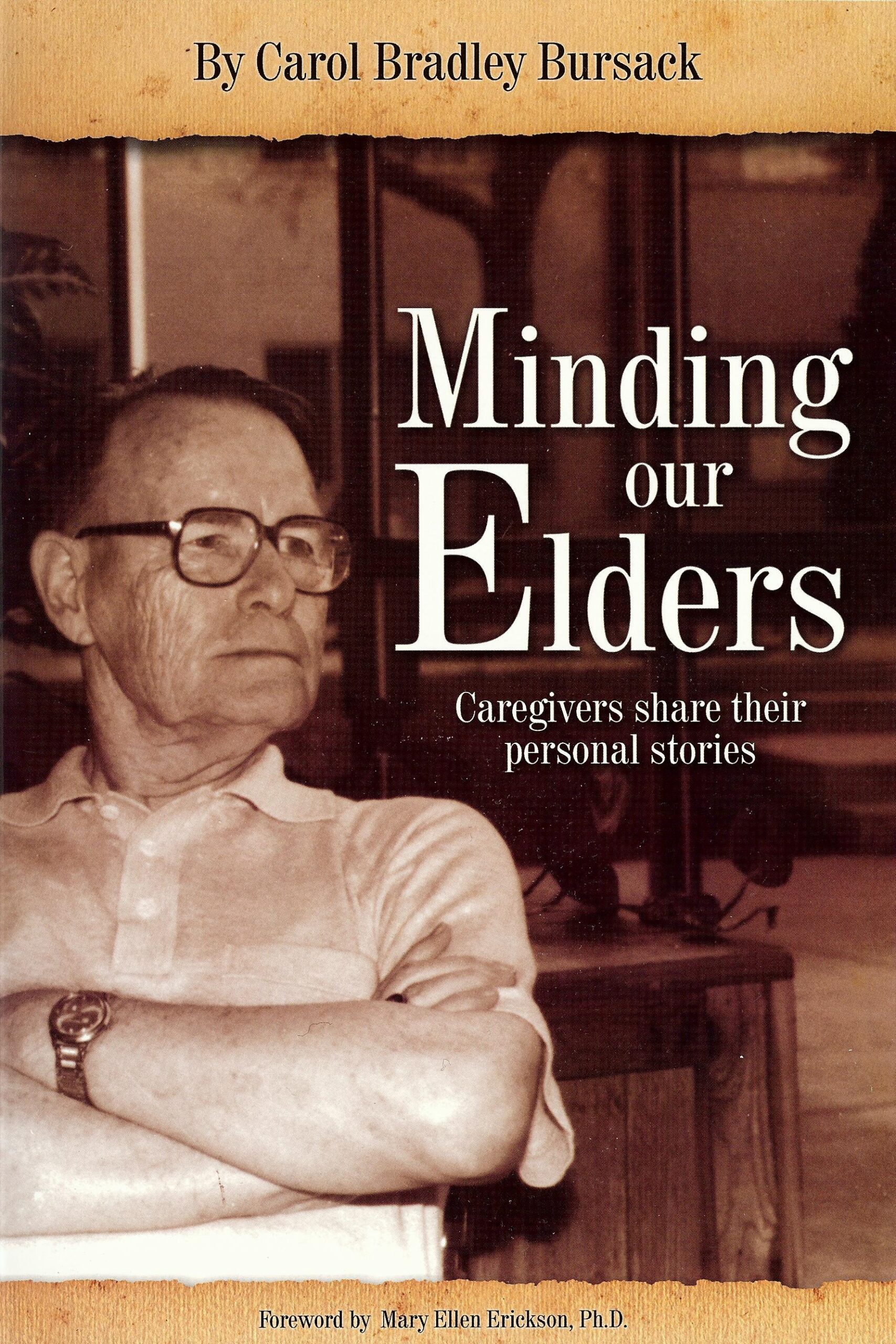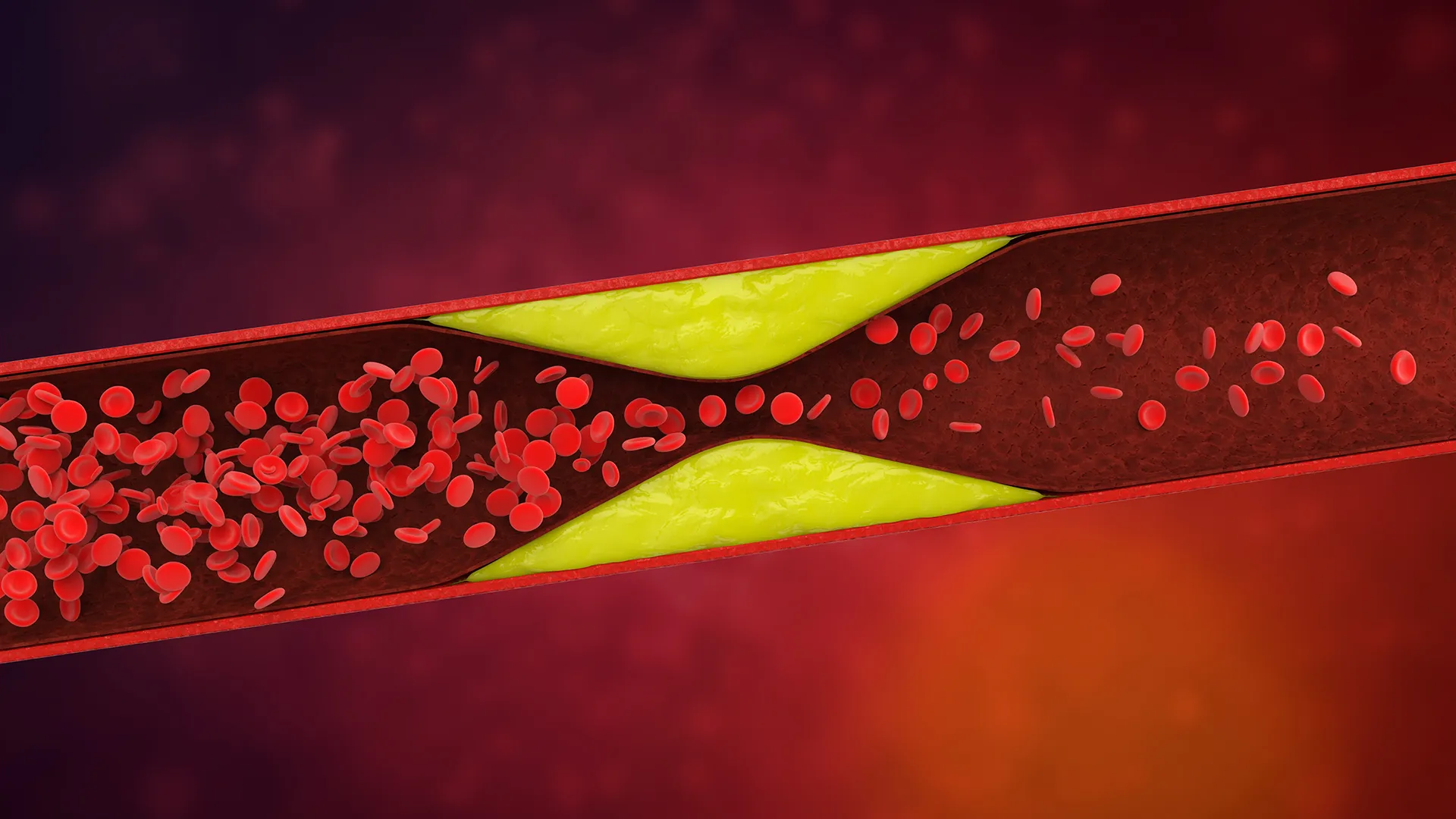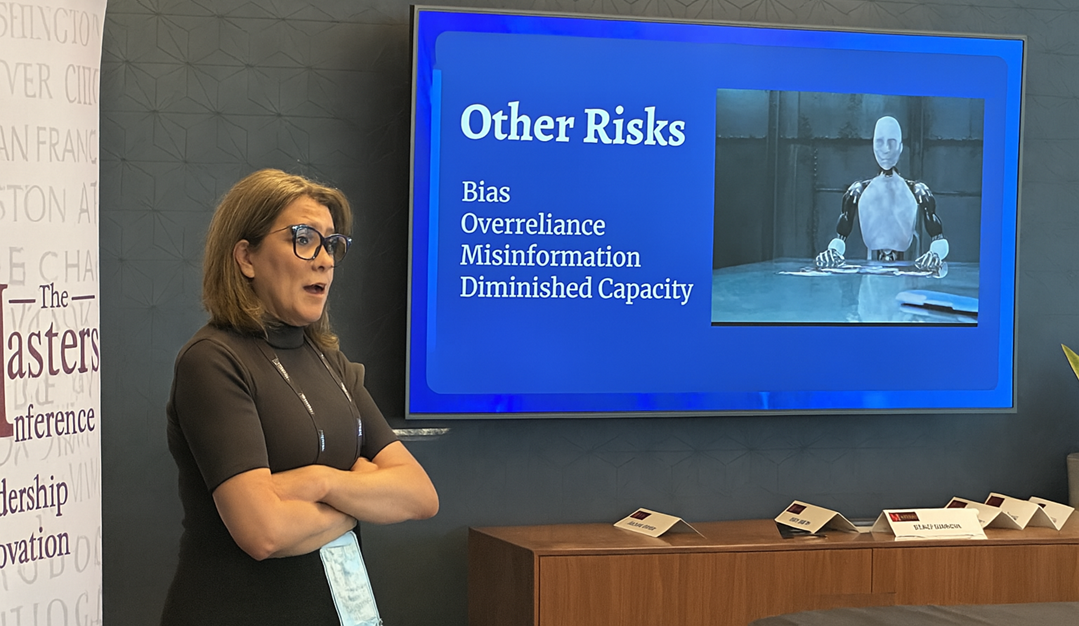Scientists have pioneered a new way to monitor sodium levels in the blood—without drawing a single drop. By combining terahertz radiation and optoacoustic detection, they created a non-invasive system that tracks sodium in real time, even through skin. The approach bypasses traditional barriers like water interference and opens up potential for fast, safe diagnostics in humans.
http://dlvr.it/TMDY3z
Thursday, July 31, 2025
New model to study hypertension and aortic aneurysms developed
Investigators have discovered a new pathway that may lead to a treatment for high blood pressure and aortic aneurysms. By creating a new laboratory model for studying these conditions, the team treated hypertension and aortic aneurysms by targeting a protein that they discovered to be involved in the vascular cells' response to oxidative stress.
http://dlvr.it/TMCkKZ
http://dlvr.it/TMCkKZ
Wednesday, July 30, 2025
The Future of Legal Practice: A Look Ahead from Masters Conference NYC 2025
The Masters Conference returned to New York City with a bold theme: "Welcome to the Masters 2035." This thought-provoking session pushed attendees to imagine what legal discovery and team dynamics could look like in 2035 with just the right blend of realism and science fiction.
The post The Future of Legal Practice: A Look Ahead from Masters Conference NYC 2025 appeared first on CloudNine.
http://dlvr.it/TMCGcB
The post The Future of Legal Practice: A Look Ahead from Masters Conference NYC 2025 appeared first on CloudNine.
http://dlvr.it/TMCGcB
Understanding Anger: What It Really Means Beneath the Surface
Anger is a universal emotion. We all experience moments of irritation, frustration, or outrage. Yet, there’s a persistent misconception that anger always looks loud, raised voices, clenched fists, or visible outbursts. In truth, anger is far more complex and often deeply nuanced. It can be fierce and explosive, or quiet and simmering. Some confront it […]
http://dlvr.it/TMC1kX
http://dlvr.it/TMC1kX
Why Would Mom Choose to Smell Rather Than Use Incontinence Products?
Dear Carol: My mom is only 79 but she has a lot of health problems including lung disease requiring oxygen. She receives...
The post Why Would Mom Choose to Smell Rather Than Use Incontinence Products? appeared first on Minding Our Elders.
Related Stories
* Fecal Incontinence Can Be a Side Effect of Various Conditions Including Constipation
* In What Way Does Food Affect Incontinence?
* Embarrassment Over Incontinence Can Be Overcome with Support
http://dlvr.it/TMBgKy
The post Why Would Mom Choose to Smell Rather Than Use Incontinence Products? appeared first on Minding Our Elders.
Related Stories
* Fecal Incontinence Can Be a Side Effect of Various Conditions Including Constipation
* In What Way Does Food Affect Incontinence?
* Embarrassment Over Incontinence Can Be Overcome with Support
http://dlvr.it/TMBgKy
Tuesday, July 29, 2025
1. 7 million patients reveal stunning link between semaglutide and lower dementia risk
A blockbuster diabetes and weight-loss drug might be doing more than controlling blood sugar—it could also be protecting the brain. Researchers at Case Western Reserve University found that people with type 2 diabetes who took semaglutide (the active ingredient in Ozempic and Wegovy) had a significantly lower risk of developing dementia. The benefit was especially strong in women and older adults.
http://dlvr.it/TMBRjg
http://dlvr.it/TMBRjg
AI sees what doctors miss: Fatty liver disease hidden in chest x-rays
Researchers in Japan created an AI that can detect fatty liver disease from ordinary chest X-rays—an unexpected and low-cost method that could transform early diagnosis. The model proved highly accurate and may offer a fast, affordable way to flag this silent but serious condition.
http://dlvr.it/TMBLrP
http://dlvr.it/TMBLrP
Caregiver Burnout is Best Prevented Since Recovery Is Hard on Everyone
Dear Carol: My mom, age 79, has had steadily declining health for several years. Arthritis is a genetic problem in my family,...
The post Caregiver Burnout is Best Prevented Since Recovery Is Hard on Everyone appeared first on Minding Our Elders.
Related Stories
* Guilty Feelings Plague Caregiver after Harsh Response to Her Mother with Dementia
* In What Way Does Food Affect Incontinence?
* Fecal Incontinence Can Be a Side Effect of Various Conditions Including Constipation
http://dlvr.it/TM9cG3
The post Caregiver Burnout is Best Prevented Since Recovery Is Hard on Everyone appeared first on Minding Our Elders.
Related Stories
* Guilty Feelings Plague Caregiver after Harsh Response to Her Mother with Dementia
* In What Way Does Food Affect Incontinence?
* Fecal Incontinence Can Be a Side Effect of Various Conditions Including Constipation
http://dlvr.it/TM9cG3
Monday, July 28, 2025
Black tea and berries could contribute to healthier aging
Higher intakes of black tea, berries, citrus fruits and apples could help to promote healthy aging, new research has found.
http://dlvr.it/TM9NRb
http://dlvr.it/TM9NRb
5-minute STI test poised to transform sexual health diagnostics
A revolutionary STI test developed by UK-based Linear Diagnostics is on track to dramatically reduce the time it takes to detect infections like gonorrhea and chlamydia. Built on ultra-fast EXPAR DNA amplification technology, the platform can deliver lab-accurate results in as little as five minutes, without sending samples to centralized labs.
http://dlvr.it/TM9J5r
http://dlvr.it/TM9J5r
Scientists discover the receptor that helps your brain clean itself—and fight Alzheimer’s
Scientists at UCSF have uncovered how certain immune cells in the brain, called microglia, can effectively digest toxic amyloid beta plaques that cause Alzheimer’s. They identified a key receptor, ADGRG1, that enables this protective action. When microglia lack this receptor, plaque builds up quickly, causing memory loss and brain damage. But when the receptor is present, it seems to help keep Alzheimer's symptoms mild. Since ADGRG1 belongs to a drug-friendly family of receptors, this opens the door to future therapies that could enhance brain immunity and protect against Alzheimer’s in more people.
http://dlvr.it/TM94ZG
http://dlvr.it/TM94ZG
In What Way Does Food Affect Incontinence?
Situations such as dementia, heart ailments, and incontinence do not go away whether your loved one is in a care facility or...
The post In What Way Does Food Affect Incontinence? appeared first on Minding Our Elders.
Related Stories
* Urinary Incontinence Not Uncommon Yet Stigma Persists
* Fecal Incontinence Can Be a Side Effect of Various Conditions Including Constipation
* Embarrassment Over Incontinence Can Be Overcome with Support
http://dlvr.it/TM8ZKp
The post In What Way Does Food Affect Incontinence? appeared first on Minding Our Elders.
Related Stories
* Urinary Incontinence Not Uncommon Yet Stigma Persists
* Fecal Incontinence Can Be a Side Effect of Various Conditions Including Constipation
* Embarrassment Over Incontinence Can Be Overcome with Support
http://dlvr.it/TM8ZKp
Sunday, July 27, 2025
Antidepressant withdrawal symptoms more common among long-term users
People who have been taking antidepressants for more than two years are substantially more likely to experience withdrawal symptoms compared to short-term users when they come off the medication, finds a new study.
http://dlvr.it/TM8M6D
http://dlvr.it/TM8M6D
A simple twist fooled AI—and revealed a dangerous flaw in medical ethics
Even the most powerful AI models, including ChatGPT, can make surprisingly basic errors when navigating ethical medical decisions, a new study reveals. Researchers tweaked familiar ethical dilemmas and discovered that AI often defaulted to intuitive but incorrect responses—sometimes ignoring updated facts. The findings raise serious concerns about using AI for high-stakes health decisions and underscore the need for human oversight, especially when ethical nuance or emotional intelligence is involved.
http://dlvr.it/TM8DJ9
http://dlvr.it/TM8DJ9
Daughter Wonders if Widowed Dad Should Live with Family or Move to Assisted Living
Dear Carol: I’m a 43-year-old woman, married with two kids in middle school. We’re grieving my mother’s recent death and trying to...
The post Daughter Wonders if Widowed Dad Should Live with Family or Move to Assisted Living appeared first on Minding Our Elders.
Related Stories
* Guilty Feelings Plague Caregiver after Harsh Response to Her Mother with Dementia
* Confused About Palliative Care Vs. Hospice Care? You Aren’t Alone
* New to Caregiving: How Do I Keep from Going Under?
http://dlvr.it/TM7qzN
The post Daughter Wonders if Widowed Dad Should Live with Family or Move to Assisted Living appeared first on Minding Our Elders.
Related Stories
* Guilty Feelings Plague Caregiver after Harsh Response to Her Mother with Dementia
* Confused About Palliative Care Vs. Hospice Care? You Aren’t Alone
* New to Caregiving: How Do I Keep from Going Under?
http://dlvr.it/TM7qzN
Saturday, July 26, 2025
Three-person DNA IVF stops inherited disease—eight healthy babies born in UK first
In a groundbreaking UK first, eight healthy babies have been born using an IVF technique that includes DNA from three people—two parents and a female donor. The process, known as pronuclear transfer, was designed to prevent the inheritance of devastating mitochondrial diseases passed down through the mother’s DNA. The early results are highly promising: all the babies are developing normally, and the disease-causing mutations are undetectable or present at levels too low to cause harm. For families once haunted by genetic risk, this science offers more than treatment—it offers transformation.
http://dlvr.it/TM7hKH
http://dlvr.it/TM7hKH
Pancreatic cancer spreads to liver or lung thanks to this protein
Scientists have discovered how pancreatic cancer cells thrive in the lungs or liver, environments that are as distinct to cells as the ocean and desert are to animals. The spread of cancer cells to organs like these often produces the very first symptoms of pancreatic cancer. But by that time, the pancreatic cancer has spread out of control.
http://dlvr.it/TM7ZK2
http://dlvr.it/TM7ZK2
Friday, July 25, 2025
Increasing physical activity in middle age may protect against Alzheimer's disease
An increase in physical activity between the ages of 45 and 65 could help prevent Alzheimer's disease, while inactivity may be detrimental to brain health.
http://dlvr.it/TM700Q
http://dlvr.it/TM700Q
AI spots deadly heart risk most doctors can't see
An advanced Johns Hopkins AI model called MAARS combs through underused heart MRI scans and complete medical records to spot hidden scar patterns that signal sudden cardiac death, dramatically outperforming current dice-roll clinical guidelines and promising to save lives while sparing patients unnecessary defibrillators.
http://dlvr.it/TM6l6G
http://dlvr.it/TM6l6G
Embarrassment Over Incontinence Can Be Overcome with Support
Dear Carol: I’m a 65-year-old man who had prostate surgery for cancer that left me incontinent. While I’m certainly grateful that the...
The post Embarrassment Over Incontinence Can Be Overcome with Support appeared first on Minding Our Elders.
Related Stories
* Urinary Incontinence Not Uncommon Yet Stigma Persists
* Changing Bedding and Protecting Furniture Challenges Alzheimer’s Caregivers
* Tips for Managing Incontinence with Dementia
http://dlvr.it/TM6CsW
The post Embarrassment Over Incontinence Can Be Overcome with Support appeared first on Minding Our Elders.
Related Stories
* Urinary Incontinence Not Uncommon Yet Stigma Persists
* Changing Bedding and Protecting Furniture Challenges Alzheimer’s Caregivers
* Tips for Managing Incontinence with Dementia
http://dlvr.it/TM6CsW
Thursday, July 24, 2025
How to choose a Skilled Nursing Facility
When families have exhausted other options sometimes the decision is made to move an older loved one in a skilled nursing facility. Usually, this decision is made under stress, without much time, and/or without a lot of information. You do not need to do this alone. Having a partner in this process, i.e. a professional … Continue reading How to choose a Skilled Nursing Facility →
The post How to choose a Skilled Nursing Facility appeared first on Aging Life Care Association.
http://dlvr.it/TM5qZF
The post How to choose a Skilled Nursing Facility appeared first on Aging Life Care Association.
http://dlvr.it/TM5qZF
How a common antibiotic fuels bacterial resistance
A new Rutgers Health study reveals a surprising twist in the antibiotic resistance story: instead of simply killing bacteria, drugs like ciprofloxacin can actually trigger a kind of microbial survival mode. By crashing the bacteria's energy levels, the antibiotic causes E. coli to ramp up its metabolism, survive attacks, and mutate faster ultimately accelerating the evolution of drug resistance.
http://dlvr.it/TM5jGn
http://dlvr.it/TM5jGn
Urinary Incontinence Not Uncommon Yet Stigma Persists
Social stigma. It’s a problem for people with nearly any condition that places them outside what is viewed as the norm, whether...
The post Urinary Incontinence Not Uncommon Yet Stigma Persists appeared first on Minding Our Elders.
Related Stories
* Tips for Managing Incontinence with Dementia
* People Living with Dementia May Fight Bathing: Compassion, Education Can Help
* Changing Bedding and Protecting Furniture Challenges Alzheimer’s Caregivers
http://dlvr.it/TM59C9
The post Urinary Incontinence Not Uncommon Yet Stigma Persists appeared first on Minding Our Elders.
Related Stories
* Tips for Managing Incontinence with Dementia
* People Living with Dementia May Fight Bathing: Compassion, Education Can Help
* Changing Bedding and Protecting Furniture Challenges Alzheimer’s Caregivers
http://dlvr.it/TM59C9
Wednesday, July 23, 2025
Mammal's lifespans linked to brain size and immune system function, says new study
Why do cats generally live longer than dogs? New research suggests that longer lifespans of mammals like cats could be linked to their bigger brains and more complex immune systems.
http://dlvr.it/TM4mFc
http://dlvr.it/TM4mFc
Preventing chronic inflammation from turning into cancer
Chronic inflammatory bowel disease is challenging to treat and carries a risk of complications, including the development of bowel cancer. Young people are particularly affected: when genetic predisposition and certain factors coincide, diseases such as ulcerative colitis or Crohn's disease usually manifest between the ages of 15 and 29 -- a critical period for education and early career development. Prompt diagnosis and treatment are crucial. Researchers have now discovered a therapeutic target that significantly contributes to halting the ongoing inflammatory processes.
http://dlvr.it/TM4fZh
http://dlvr.it/TM4fZh
The Complicated Prostate: Cancer Is a Concern, but There’s More to Consider
Most younger men don’t spend a lot of time considering the health of their prostate. However, around the age of 50, they’ll...
The post The Complicated Prostate: Cancer Is a Concern, but There’s More to Consider appeared first on Minding Our Elders.
Related Stories
* Confused About Palliative Care Vs. Hospice Care? You Aren’t Alone
* Guilty Feelings Plague Caregiver after Harsh Response to Her Mother with Dementia
* Changing Bedding and Protecting Furniture Challenges Alzheimer’s Caregivers
http://dlvr.it/TM462J
The post The Complicated Prostate: Cancer Is a Concern, but There’s More to Consider appeared first on Minding Our Elders.
Related Stories
* Confused About Palliative Care Vs. Hospice Care? You Aren’t Alone
* Guilty Feelings Plague Caregiver after Harsh Response to Her Mother with Dementia
* Changing Bedding and Protecting Furniture Challenges Alzheimer’s Caregivers
http://dlvr.it/TM462J
Tuesday, July 22, 2025
Vitamin C flips your skin’s “youth genes,” reversing age-related thinning
Japanese researchers have found that vitamin C can thicken skin by switching on genes that boost skin cell growth, helping reverse age-related thinning. It works by reactivating DNA through a process that lets cells regenerate more effectively—potentially a game-changer for aging skin.
http://dlvr.it/TM3hQJ
http://dlvr.it/TM3hQJ
Scientists reverse Parkinson’s symptoms in mice — Could humans be next?
Scientists at the University of Sydney have uncovered a malfunctioning version of the SOD1 protein that clumps inside brain cells and fuels Parkinson’s disease. In mouse models, restoring the protein’s function with a targeted copper supplement dramatically rescued movement, hinting at a future therapy that could slow or halt the disease in people.
http://dlvr.it/TM3Rp7
http://dlvr.it/TM3Rp7
If You’d Like to Help a University Student Help Caregivers, Consider This Short Survey
Hi Friends, For much of his life, this University of Wisconsin-Madison student has been involved with family members needing care. While still...
The post If You’d Like to Help a University Student Help Caregivers, Consider This Short Survey appeared first on Minding Our Elders.
Related Stories
* Confused About Palliative Care Vs. Hospice Care? You Aren’t Alone
* Guilty Feelings Plague Caregiver after Harsh Response to Her Mother with Dementia
* New to Caregiving: How Do I Keep from Going Under?
http://dlvr.it/TM33S2
The post If You’d Like to Help a University Student Help Caregivers, Consider This Short Survey appeared first on Minding Our Elders.
Related Stories
* Confused About Palliative Care Vs. Hospice Care? You Aren’t Alone
* Guilty Feelings Plague Caregiver after Harsh Response to Her Mother with Dementia
* New to Caregiving: How Do I Keep from Going Under?
http://dlvr.it/TM33S2
Monday, July 21, 2025
HIV drugs offer 'substantial' Alzheimer's protection, new research indicates
The drugs, called NRTIs, have the potential to prevent a million cases of Alzheimer's every year, the researchers believe.
http://dlvr.it/TM2fSl
http://dlvr.it/TM2fSl
Your Brain’s Hidden Defenses Against Alzheimer’s
Scientists at UCSF combined advanced brain-network modeling, genetics, and imaging to reveal how tau protein travels through neural highways and how certain genes either accelerate its toxic journey or shield brain regions from damage. Their extended Network Diffusion Model pinpoints four gene categories that govern vulnerability or resilience, reshaping our view of Alzheimer’s progression and spotlighting fresh therapeutic targets.
http://dlvr.it/TM2RDZ
http://dlvr.it/TM2RDZ
New research lays groundwork for early detection of Alzheimer's disease
A new study suggests that risk factors and biomarkers related to Alzheimer's disease are associated with cognition much earlier in life than previously recognized. The study highlights significant associations between cognition and Alzheimer's disease risk factors as young as ages 24 to 44 and underscores the importance of early prevention. This is the first study to systematically examine Alzheimer's disease risk factors, including biomarkers related to cognitive impairment in a large group of generally healthy middle-aged individuals in the U.S.
http://dlvr.it/TM1yZx
http://dlvr.it/TM1yZx
Sunday, July 20, 2025
Are you curious? It might help you stay sharp as you age
Psychology literature has shown that curiosity tends to decline with age. Psychologists shows one type of curiosity can increase well into old age, contradicting prior research. Older adults who maintain curiosity and want to learn new things relevant to their interests may be able to offset or even prevent Alzheimer's disease. Conversely, those who show muted curiosity and disinterest may be at risk for dementia.
http://dlvr.it/TM1gqd
http://dlvr.it/TM1gqd
New injection could help millions with high blood pressure
Results from a clinical trial show that giving people with high blood pressure an injection every six months can lead to a meaningful, sustained reduction in their blood pressure.
http://dlvr.it/TM1YHs
http://dlvr.it/TM1YHs
Guilty Feelings Plague Caregiver after Harsh Response to Her Mother with Dementia
Dear Carol: My mother with dementia has developed a fixation on the silver she sold years ago, and she repeatedly accuses me of...
The post Guilty Feelings Plague Caregiver after Harsh Response to Her Mother with Dementia appeared first on Minding Our Elders.
Related Stories
* New to Caregiving: How Do I Keep from Going Under?
* Tips for Managing Incontinence with Dementia
* Changing Bedding and Protecting Furniture Challenges Alzheimer’s Caregivers
http://dlvr.it/TM1KbP
The post Guilty Feelings Plague Caregiver after Harsh Response to Her Mother with Dementia appeared first on Minding Our Elders.
Related Stories
* New to Caregiving: How Do I Keep from Going Under?
* Tips for Managing Incontinence with Dementia
* Changing Bedding and Protecting Furniture Challenges Alzheimer’s Caregivers
http://dlvr.it/TM1KbP
The silent threat: How hearing loss and loneliness are fueling memory decline
A massive European study has uncovered a powerful connection between hearing loss, loneliness, and memory decline. Researchers at the University of Geneva found that older adults with hearing impairments who also feel lonely—regardless of actual social isolation—experience faster cognitive decline.
http://dlvr.it/TM1HD2
http://dlvr.it/TM1HD2
Saturday, July 19, 2025
A midlife MRI that spots rapid aging and signals disease long before symptoms
A new brain scan tool shows how quickly your body and mind are aging. It can spot early signs of diseases like dementia, long before symptoms begin. The scan looks at hidden clues in your brain to predict future health.
http://dlvr.it/TM0vfG
http://dlvr.it/TM0vfG
One shot, seven days: Long-acting levodopa gel tackles Parkinson’s tremors
Researchers in Australia have created a biodegradable gel that delivers Parkinson’s medications through a single weekly shot, replacing the need for multiple daily pills. Injected just under the skin, the gel steadily releases levodopa and carbidopa for seven days, helping keep tremors and stiffness in check while easing side effects linked to fluctuating doses.
http://dlvr.it/TM0r4R
http://dlvr.it/TM0r4R
Changing Bedding and Protecting Furniture Challenges Alzheimer’s Caregivers
Dear Carol: My dad has had Alzheimer’s for seven years and is currently in the later stages. We looked at memory care...
The post Changing Bedding and Protecting Furniture Challenges Alzheimer’s Caregivers appeared first on Minding Our Elders.
Related Stories
* Tips for Managing Incontinence with Dementia
* People Living with Dementia May Fight Bathing: Compassion, Education Can Help
* An Older Adult Skips Bathing? Maybe there’s a Reason
http://dlvr.it/TM0hDl
The post Changing Bedding and Protecting Furniture Challenges Alzheimer’s Caregivers appeared first on Minding Our Elders.
Related Stories
* Tips for Managing Incontinence with Dementia
* People Living with Dementia May Fight Bathing: Compassion, Education Can Help
* An Older Adult Skips Bathing? Maybe there’s a Reason
http://dlvr.it/TM0hDl
Researchers grow 400+ brain cell types—a leap for Alzheimer’s and Parkinson’s research
Scientists at ETH Zurich have broken new ground by generating over 400 types of nerve cells from stem cells in the lab, far surpassing previous efforts that produced only a few dozen. By systematically experimenting with combinations of morphogens and gene regulators, the researchers replicated the vast diversity of neurons found in the human brain. This breakthrough holds major promise for studying neurological diseases like Alzheimer’s and Parkinson’s, creating more accurate models for drug testing, and eventually even enabling neuron replacement therapies.
http://dlvr.it/TM0dkj
http://dlvr.it/TM0dkj
Friday, July 18, 2025
Addressing hearing loss may reduce isolation among the elderly
Providing hearing aids and advice on their use may preserve social connections that often wane as we age, a new study shows. Its authors say that this approach could help ease the loneliness epidemic that older Americans face.
http://dlvr.it/TM097h
http://dlvr.it/TM097h
This AI tracks lung tumors as you breathe — and it might save lives
An AI system called iSeg is reshaping radiation oncology by automatically outlining lung tumors in 3D as they shift with each breath. Trained on scans from nine hospitals, the tool matched expert clinicians, flagged cancer zones some missed, and could speed up treatment planning while reducing deadly oversights.
http://dlvr.it/TM03zf
http://dlvr.it/TM03zf
New to Caregiving: How Do I Keep from Going Under?
Dear Carol: My parents are in their 70s and had been mostly healthy. I don’t have to worry about financial and health...
The post New to Caregiving: How Do I Keep from Going Under? appeared first on Minding Our Elders.
Related Stories
* Tips for Managing Incontinence with Dementia
* People Living with Dementia May Fight Bathing: Compassion, Education Can Help
* ‘Virtual Dementia Tour’ Increases Caregivers’ Empathy – Part 2
http://dlvr.it/TLzpvj
The post New to Caregiving: How Do I Keep from Going Under? appeared first on Minding Our Elders.
Related Stories
* Tips for Managing Incontinence with Dementia
* People Living with Dementia May Fight Bathing: Compassion, Education Can Help
* ‘Virtual Dementia Tour’ Increases Caregivers’ Empathy – Part 2
http://dlvr.it/TLzpvj
Thursday, July 17, 2025
Superbugs in your shrimp: Deadly colistin-resistance genes ride on imported seafood
Colistin, a last-resort antibiotic, is losing its power due to rising resistance—and the culprits might be hiding in your seafood dinner. A University of Georgia research team discovered colistin-resistance genes in bacteria found in imported shrimp and scallops from markets in Atlanta. These genes can hop between bacteria via plasmids, potentially turning once-curable infections into deadly threats.
http://dlvr.it/TLytTY
http://dlvr.it/TLytTY
Tips for Managing Incontinence with Dementia
Dear Carol: My dad has Alzheimer’s. Since I’ve received support and training from the Alzheimer’s Association for how to deal with his...
The post Tips for Managing Incontinence with Dementia appeared first on Minding Our Elders.
Related Stories
* People Living with Dementia May Fight Bathing: Compassion, Education Can Help
* An Older Adult Skips Bathing? Maybe there’s a Reason
* The Stigma of Incontinence Can Keep Older Adults Secluded, Adding to Potential for Decline
http://dlvr.it/TLynxP
The post Tips for Managing Incontinence with Dementia appeared first on Minding Our Elders.
Related Stories
* People Living with Dementia May Fight Bathing: Compassion, Education Can Help
* An Older Adult Skips Bathing? Maybe there’s a Reason
* The Stigma of Incontinence Can Keep Older Adults Secluded, Adding to Potential for Decline
http://dlvr.it/TLynxP
Inflammatory messenger fuels Alzheimer's
Researchers have detailed the precise mechanism through which the inflammatory signaling molecule IL-12 contributes to Alzheimer's disease.
http://dlvr.it/TLybFh
http://dlvr.it/TLybFh
Wednesday, July 16, 2025
Epilepsy is more common in patients with frontotemporal dementia than expected
According to a recent study, in patients with frontotemporal dementia (FTD), epileptic seizures are significantly more common than previously known. The discovery deepens understanding of the symptoms of this memory disorder and emphasises the importance of taking epileptic seizures into account in the treatment and monitoring of patients.
http://dlvr.it/TLy7Nl
http://dlvr.it/TLy7Nl
Ultrafast 12-minute MRI maps brain chemistry to spot disease before symptoms
Illinois engineers fused ultrafast imaging with smart algorithms to peek at living brain chemistry, turning routine MRIs into metabolic microscopes. The system distinguishes healthy regions, grades tumors, and forecasts MS flare-ups long before structural MRI can. Precision-medicine neurology just moved closer to reality.
http://dlvr.it/TLxslK
http://dlvr.it/TLxslK
The hunger switch in your nose: How smells tell your brain to stop eating
A team of scientists has discovered a direct link between the smell of food and feelings of fullness at least in lean mice. This brain circuit, located in the medial septum and triggered by food odors, helps animals eat less by making them feel satiated even before taking a bite. But intriguingly, obese mice lacked this response, highlighting how excess weight may interfere with this satiety mechanism. The finding could have major implications for how we think about the role of smell in appetite and offer new strategies to combat overeating.
http://dlvr.it/TLxRf9
http://dlvr.it/TLxRf9
Tuesday, July 15, 2025
The brain’s sweet spot: How criticality could unlock learning, memory—and prevent Alzheimer’s
Our brains may work best when teetering on the edge of chaos. A new theory suggests that criticality a sweet spot between order and randomness is the secret to learning, memory, and adaptability. When brains drift from this state, diseases like Alzheimer s can take hold. Detecting and restoring criticality could transform diagnosis and treatment.
http://dlvr.it/TLwrHF
http://dlvr.it/TLwrHF
Study of facial bacteria could lead to probiotics that promote healthy skin
A study sheds light on when and how bacterial strains emerge on facial skin. The findings could lead to new treatments for acne and other conditions, and may also help optimize the timing of such treatments.
http://dlvr.it/TLwjm6
http://dlvr.it/TLwjm6
Scientists just found a sugar switch that protects your brain from Alzheimer's
Scientists have uncovered a surprising sugar-related mechanism inside brain cells that could transform how we fight Alzheimer’s and other dementias. It turns out neurons don’t just store sugar for fuel—they reroute it to power antioxidant defenses, but only if an enzyme called GlyP is active. When this sugar-clearing system is blocked, toxic tau protein builds up and accelerates brain degeneration.
http://dlvr.it/TLwPCK
http://dlvr.it/TLwPCK
Monday, July 14, 2025
Sensitivity Training for Caregivers of People with Dementia – Part 1
Please wipe this mess off of my face. Please! Don’t go so fast, I can’t swallow! I’m not ready for a drink...
The post Sensitivity Training for Caregivers of People with Dementia – Part 1 appeared first on Minding Our Elders.
Related Stories
* Husband Has Problems Accepting Surgically Caused Bowel Incontinence
* Happy Independence Day from Minding Our Elders!
* Caregiver Requests Tips for Family Visiting Mother in Memory Care
http://dlvr.it/TLvjGV
The post Sensitivity Training for Caregivers of People with Dementia – Part 1 appeared first on Minding Our Elders.
Related Stories
* Husband Has Problems Accepting Surgically Caused Bowel Incontinence
* Happy Independence Day from Minding Our Elders!
* Caregiver Requests Tips for Family Visiting Mother in Memory Care
http://dlvr.it/TLvjGV
Biological 'clocks' key to muscle health and accelerated aging in shift workers
Muscle cells contain their own circadian clocks and disrupting them with shift work can have a profound impact on aging, according to new research.
http://dlvr.it/TLvj4D
http://dlvr.it/TLvj4D
Even low levels of air pollution may quietly scar your heart, MRI study finds
Breathing polluted air—even at levels considered “safe”—may quietly damage your heart. A new study using advanced MRI scans found that people exposed to more air pollution showed early signs of scarring in their heart muscle, which can lead to heart failure over time. This damage showed up in both healthy individuals and people with heart conditions, and was especially noticeable in women, smokers, and those with high blood pressure.
http://dlvr.it/TLvfjQ
http://dlvr.it/TLvfjQ
Sunday, July 13, 2025
Scientists just found 200+ hidden proteins that may drive Alzheimer’s
A surprising new study has uncovered over 200 misfolded proteins in the brains of aging rats with cognitive decline, beyond the infamous amyloid and tau plaques long blamed for Alzheimer’s. These shape-shifting proteins don’t clump into visible plaques, making them harder to detect but potentially just as harmful. Scientists believe these “stealth” molecules could evade the brain’s cleanup systems and quietly impair memory and brain function. The discovery opens a new frontier in understanding dementia and could lead to entirely new targets for treatment and prevention.
http://dlvr.it/TLvKb6
http://dlvr.it/TLvKb6
The molecule that might save your sight—and your heart
Washington University researchers found that raising a molecule called ApoM helps eye cells sweep away harmful cholesterol deposits linked to age-related macular degeneration, potentially preventing vision loss, and the same trick might aid failing hearts too.
http://dlvr.it/TLtwz8
http://dlvr.it/TLtwz8
Your CT scan could reveal a hidden heart risk—and AI just learned how to find it
What if your old chest scans—taken years ago for something unrelated—held a secret warning about your heart? A new AI tool called AI-CAC, developed by Mass General Brigham and the VA, can now comb through routine CT scans to detect hidden signs of heart disease before symptoms strike.
http://dlvr.it/TLtvln
http://dlvr.it/TLtvln
Caregiver Requests Tips for Family Visiting Mother in Memory Care
Dear Carol: My family is having a reunion in August. I’m concerned because several members of my extended family want to visit...
The post Caregiver Requests Tips for Family Visiting Mother in Memory Care appeared first on Minding Our Elders.
Related Stories
* Husband Has Problems Accepting Surgically Caused Bowel Incontinence
* Happy Independence Day from Minding Our Elders!
* On July 4th and Beyond, Honor Your Elders’ Need for Independence
http://dlvr.it/TLtlDn
The post Caregiver Requests Tips for Family Visiting Mother in Memory Care appeared first on Minding Our Elders.
Related Stories
* Husband Has Problems Accepting Surgically Caused Bowel Incontinence
* Happy Independence Day from Minding Our Elders!
* On July 4th and Beyond, Honor Your Elders’ Need for Independence
http://dlvr.it/TLtlDn
Saturday, July 12, 2025
First synthetic 'mini prion' shows how protein misfolding multiplies
Prions transmit their abnormally folded shape onto other proteins. Researchers designed a synthetic fragment of the tau protein that exhibits prion-like behavior. Misfolded tau proteins are the hallmark of many neurodegenerative diseases, including Alzheimer's disease and frontotemporal dementia. Study revealed crucial role of water organization in the tau misfolding process.
http://dlvr.it/TLtgnc
http://dlvr.it/TLtgnc
Trouble hearing in noisy places and crowded spaces? Researchers say new algorithm could help hearing aid users
BU researchers develop a brain-inspired algorithm that can help people with hearing loss pick out conversations in noisy, crowded spaces.
http://dlvr.it/TLtGh5
http://dlvr.it/TLtGh5
An Older Adult Skips Bathing? Maybe there’s a Reason
A common complaint about older people, especially those who have health challenges, is that they “smell” or have other signs that they...
The post An Older Adult Skips Bathing? Maybe there’s a Reason appeared first on Minding Our Elders.
Related Stories
* The Stigma of Incontinence Can Keep Older Adults Secluded, Adding to Potential for Decline
* Husband Has Problems Accepting Surgically Caused Bowel Incontinence
* Dad’s Personality Has Changed Overnight: Medications? A UTI?
http://dlvr.it/TLt3pg
The post An Older Adult Skips Bathing? Maybe there’s a Reason appeared first on Minding Our Elders.
Related Stories
* The Stigma of Incontinence Can Keep Older Adults Secluded, Adding to Potential for Decline
* Husband Has Problems Accepting Surgically Caused Bowel Incontinence
* Dad’s Personality Has Changed Overnight: Medications? A UTI?
http://dlvr.it/TLt3pg
Friday, July 11, 2025
Your Brain’s Hidden Defenses Against Alzheimer’s
Scientists at UCSF combined advanced brain-network modeling, genetics, and imaging to reveal how tau protein travels through neural highways and how certain genes either accelerate its toxic journey or shield brain regions from damage. Their extended Network Diffusion Model pinpoints four gene categories that govern vulnerability or resilience, reshaping our view of Alzheimer’s progression and spotlighting fresh therapeutic targets.
http://dlvr.it/TLt05m
http://dlvr.it/TLt05m
Maintaining balance in the immune system
Researchers have published the first description of the role of the ZFP36 family of RNA binding proteins in regulatory T cells (Tregs). Tregs are key to maintaining balance in the immune system and essential to preventing autoimmune disease. By the targeted deletion of Zfp36l1 and Zfp36l2 in Tregs in mice, the findings demonstrate that loss of these RNA binding proteins results in Tregs no longer being able to control other immune cell types, which results in inflammation. The data point to a key role of ZFP36L1 and ZFP36L2 in governing multiple cytokine responses in Tregs, including regulating the availability of the cytokine interferon-gamma, which activates immune responses, as well as being important in maintaining Treg stability.
http://dlvr.it/TLsNhG
http://dlvr.it/TLsNhG
Hidden in your dna: The mutation combo that raises clot risk by 180%
Genetic research in Sweden has unveiled three new gene variants that dramatically increase the risk of venous blood clots, sometimes by up to 180%. These discoveries build on existing knowledge of Factor V Leiden and suggest that genetics plays a bigger role than previously thought, especially for clots in the legs that can lead to life-threatening pulmonary embolisms.
http://dlvr.it/TLsCGz
http://dlvr.it/TLsCGz
Thursday, July 10, 2025
How AI Is Reshaping Courts, Legal Practice, and the Justice System
Masters Conference insights: Judge Braswell laid out a powerful framework for how courts are grappling with AI today. Judges are no longer on the sidelines, they’re gatekeepers, educators, and even users of AI tools.
The post How AI Is Reshaping Courts, Legal Practice, and the Justice System appeared first on CloudNine.
Related Stories
* Mobile Data Matters: Because Your Phone Might Be the Star Witness
* AI in eDiscovery: What Was, What Is, and What’s Coming
* Collaboration in Action: Solving eDiscovery Challenges with the Right Partners
http://dlvr.it/TLryV0
The post How AI Is Reshaping Courts, Legal Practice, and the Justice System appeared first on CloudNine.
Related Stories
* Mobile Data Matters: Because Your Phone Might Be the Star Witness
* AI in eDiscovery: What Was, What Is, and What’s Coming
* Collaboration in Action: Solving eDiscovery Challenges with the Right Partners
http://dlvr.it/TLryV0
Memory is impaired in aged rats after 3 days of high-fat eating
Just a few days of eating a diet high in saturated fat could be enough to cause memory problems and related brain inflammation in older adults, a new study in rats suggests.
http://dlvr.it/TLrvzL
http://dlvr.it/TLrvzL
Vitamin C flips your skin’s “youth genes,” reversing age-related thinning
Japanese researchers have found that vitamin C can thicken skin by switching on genes that boost skin cell growth, helping reverse age-related thinning. It works by reactivating DNA through a process that lets cells regenerate more effectively—potentially a game-changer for aging skin.
http://dlvr.it/TLqzyZ
http://dlvr.it/TLqzyZ
Sharing of lifespan brain study data expected to light new paths
Researchers have released the full dataset from the Dallas Lifespan Brain Study, a decade-long project designed to track brain and cognitive health as people age and distinguish neurologically healthy paths from those indicating a likelihood of decline.
http://dlvr.it/TLqzkZ
http://dlvr.it/TLqzkZ
Wednesday, July 9, 2025
How to Build Successful Mental Wellness Programs for Employees?
In a world that thrives on speed, productivity, and constant connectivity, the quiet toll it takes on the minds and hearts of employees often goes unnoticed. But the tides are turning. Across boardrooms and break rooms, companies are awakening to the profound truth: the health of the workplace lies in the wellbeing of its people. […]
http://dlvr.it/TLq8m7
http://dlvr.it/TLq8m7
Subscribe to:
Comments (Atom)


















